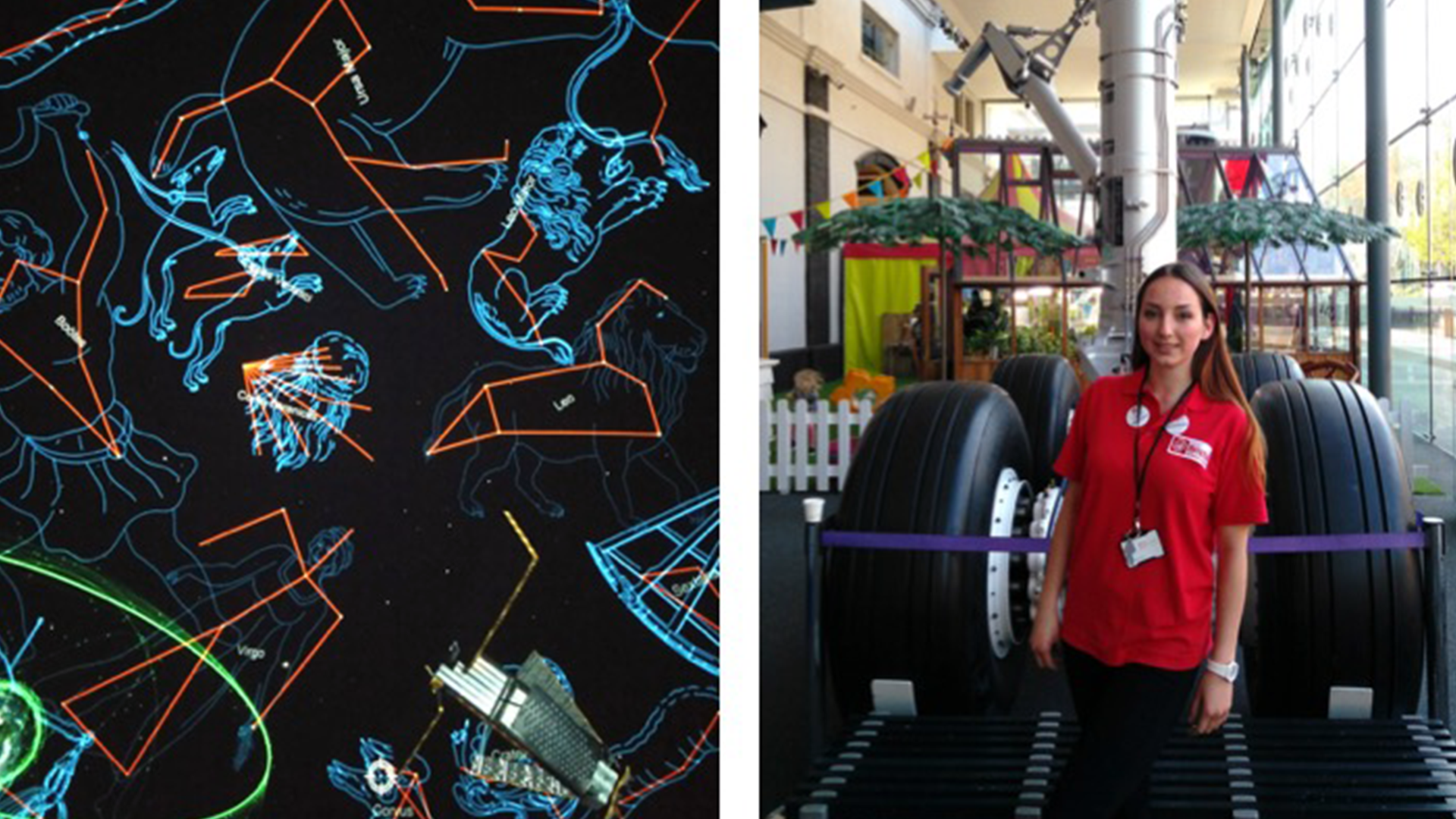5 things NOT to do when “Getting Women into STEM”
We’re doing it wrong. You see, now is a fantastic time to be a young woman in STEM, and it will probably get even better over the next decade.
Not only are western companies very open to hiring female candidates, but the average workplace is also becoming more accepting. There are enormous amounts of free online resources, workshops and outreach initiatives focused on encouraging female students into STEM.
So why are the numbers of girls choosing the STEM career path still growing very slowly?[1]
I believe that we are simply doing it wrong. We could use an update on the words we use when encouraging girls to get into STEM.
Note: The following opinions are my own and do not necessarily reflect the views of the University. See footnote*.

Some phrases that I’ve heard being used to advertise careers in STEM are absolutely hilarious.
“You get to wear a hard-hat!”
This is not a great advertisement, as hard-hats mess up your hair and never match your outfit. Safety boots and goggles follow the same principle. And no, those high-heeled safety shoes are never going to be fashionable! And no, I should not start selling them!
Even SpaceX’s Gwynne Shotwell says, in an interview, that she was motivated to become an engineer to be like a female role model, who dressed in expensive suits and matched purse to shoes…[Symbol]
Better alternative: “You often actually spend a lot of time in an office, where you can wear anything you like, including fashionable outfits. There are even croissants and a subsidised Starbucks, if you are lucky!”
“You can work in the factory!”
Yes, factories are absolutely amazing (I’m a materials and manufacturing engineer), but they bring to mind dirty and oily cells operated by men in overalls. This is often very far from the truth and is not a great advertisement for potential STEM careers.
Better alternative: “Some engineering projects may require you to travel or live abroad in exciting locations. You get to stay in a nice hotel and be a tourist in the evenings!”.
“We get to get our hands dirty!”
This is the same as point #2. However, it is important to point out that STEM jobs are very varied in their nature. A lot of younger students think that an engineer has to do science experiments all day, yet this is far from the truth. Many students may not be interested in doing the practical work, or in tinkering with dirty engine parts.
Better alternative: “As an engineer, your job will be very varied. You could be talking to scientists in a lab to assess the failure of parts on an airplane or helping develop a research & development strategy for a firm”.
“You can work with robots, just like the men!”
Robotics are cool, boys are not. They have cooties and are generally weird. As a result, a proportion of girls may purposefully be swayed towards less male-dominated subjects.
Better alternative: “You can work with robots, they are cool”.
“There aren’t enough females in STEM!”
While true, this may highlight the male-dominated nature of the industry and deter potential applicants. Instead, focus on the benefits that a career in STEM can offer, such as the average work hours, work benefits, rewarding projects, salary ranges, etc.
Better alternative: “The numbers of women in STEM is growing every year… You can also get involved in outreach and act as a role model to younger students!”
“STEM is great, but you could just go into finance because you’re great with both numbers and people.”
Yes, that’s true, but please don’t say this.
Better alternative: “An engineering degree will allow you to pursue a career in any numerical or analytical field, even banking or finance. However, I hope that you will pursue a rewarding STEM career that can help you make the world a better place”.

Examples of better strategies of talking to girls about careers in STEM:
The People Like Me campaign by WISE, UK, uses the concept that vocabulary affects the young adult’s sense of ‘fitting-in’ to a career path. For example, girls are more responsive to adjectives, while boys are more responsive to verbs, so careful choice of vocabulary may play a part in how we should talk about careers with young adults.
Multiple academics and parents I’ve interviewed also cite a strategy of focussing on how STEM helps others and our planet. Multiple anecdotal case studies, from university courses to marketing headlines also show that connecting the helpful and caring nature of some engineering fields can seem more attractive to females than traditional fields, such as construction.
Further resources on the topic of Women in STEM and relevant activities:
- Loughborough University’s own Dr. Will Whittow on the truth about engineering https://www.whatuni.com/advice/choosing-a-course/engineer-your-career/55908/.
- Women in Stem website: https://www.womeninstem.co.uk/.
- Volunteering through STEM Ambassadors: https://www.stem.org.uk/stem-ambassadors.
- Girls Who Code initiative, worldwide: https://girlswhocode.com/.
- Code First: Girls, a free coding lessons initiative: https://www.codefirstgirls.org.uk/.
- Google workshops in STEM fields, such as robotics or machining, in your local area through a webinar!
Afterword: good-bye Loughborough!
This is my last blog, and now it is finally time to say good-bye after 4 incredible years and a year as a student ambassador. I would like to wish the very best of luck, happiness and success to all reading this. Live your life to the max, have fun, help others, leave the world a little better than it was before! <3
Finally, a great ‘thank you’ to the incredible student ambassador coordinator Jess Excell, the School and College Liason team, marketing and digital teams and everybody else who has made the student ambassador one of the highlights of my Loughborough experience.
‘Thank you’ to all of the educators for pushing me.
‘Thank you’ to my hilarious and caring friends for helping me laugh at Kikuchi patterns and get through the 4 years.
‘Thank you’ to all the teams I’ve been on for making me a stronger and better person.
‘Thank you’ to Loughborough.
Footnote
*I have assumed that my readers are familiar with the issue and three common postulates of STEM initiatives:
- Diversity improves business performance [2].
- The gender difference first becomes evident in middle school…
- Thus, campaigns should target a wide population, from young children to university-level. )
Works cited:
[1] ‘Core STEM Graduates 2017’, WISE, 2018.
[2] Kochan, T., Bezrukova, K., Ely, R., Jackson, S., Joshi, A., Jehn, K., Leonard, J., Levine, D. and Thomas, D. ‘The effects of diversity on business performance: Report of the diversity research network’. Human Resource Management, 2003.
Student Life
Find out what makes 'The Loughborough Experience' by reading our student blogs.